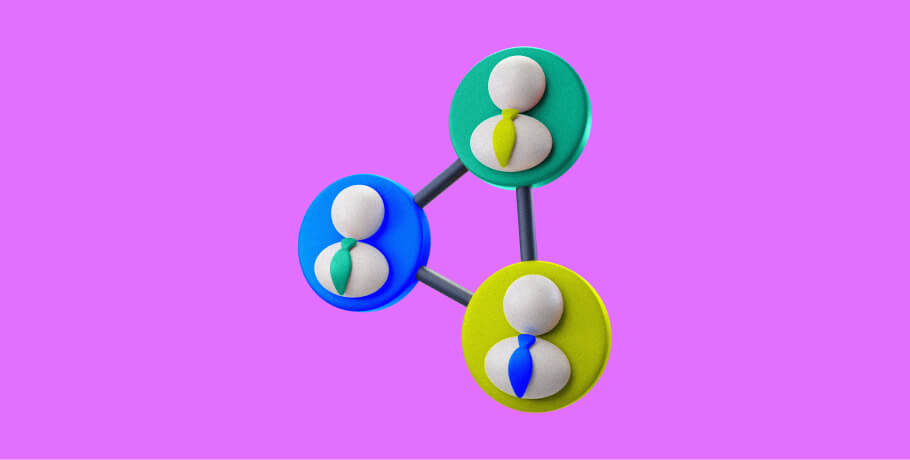The skills any software developer needs for work come in two types: hard skills and soft skills. The first being profession-specific skills that engineers use to handle technical tasks, like Java or Big Data stack knowledge.
Soft skills, on the other hand, are non-specialized skills that are no less important for boosting your career as a software developer. What are these skills? Why do you need them? How can you develop them? And why are engineers with strong soft skills in greater demand?
What soft skills are
Soft skills are unrelated to an employee’s direct work responsibilities. In IT, these are the skills that don’t have a direct relation to development or testing but are still necessary for successful work in a team.
People often mistakenly equate soft skills with being able to communicate, as if being able to form complete sentences means your soft skills are in order. But that’s not always true.
Generally speaking, soft skills come in two categories: communication (interpersonal, intercultural communication, and emotional intellect) and goal setting (leadership, self-management, stress management).
Why software developers need soft skills?
Why does an engineer need all this if their main task is to write code or test applications? The bare minimum for everyone is to be able, to communicate effectively with other team members. Nowadays, most programs are built by teams, as it’s almost impossible to create a successful and profitable product alone. You can definitely invest your talent, time, and effort, and work without any help. But the dividends will be much higher if you are working with others.
Being a team player without interpersonal communication skills (the ability to ask questions, listen, and give arguments for your view) is next to impossible. If you’re working in a multinational team, you also have to understand the principles of intercultural communication and business correspondence.
Imagine that you’re writing to a foreign colleague to say you found some bugs in their code. You point out their mistakes and ask them to fix them as soon as possible. But after reading your email your colleague is at a loss. You come off as a rude and even aggressive person. All because instead of “Could you please fix these bugs?” you wrote “Fix these bugs.”
What seems like unnecessary politeness to you is the norm in correspondence in some regions. You need to know these rules to maintain good relations with your colleagues and achieve results from your work together.
Engineers also need soft skills to plan their time, set effective goals, and manage their emotions.
And, sooner or later, you’re likely to start thinking of leveling up your career: either through a promotion or a raise. At least that’s the case with most engineers.
With each new step up the career ladder, soft skills grow their importance. You simply can’t get the positions of a team leader or manager without leadership skills, emotional intellect, or conflict management skills. For many people these skills won’t just appear on their own – you have to start developing them now. You should be no less serious about developing soft skills than you are about technical skills.
Which soft skills engineers need?
A few years ago, IEEE developed SWECOM (Software Engineering Competency Model). This model describes both the hard skills necessary for an engineer and soft skills – cognitive skills and behavioral attributes.
EPAM also has its own competency matrix that reflects the necessary set of skills – hard and soft – for each position and lets you know which position a given employee corresponds to and what skills should be acquired to move to the next level. An employee should be aware that if they plan to become a senior engineer within two years, they need to work on their presentation skills as well as to be able to communicate effectively with their colleagues and clients. Engineering only is not enough.
You can imagine soft skills as a kind of pyramid. At the foundation, there are basic skills that every engineer should possess. As the employee moves up the career ladder, the pyramid grows. Senior engineers need to develop a certain set of soft skills, while team leaders need the engineer’s and senior engineer’s skills along with other position-specific soft skills.
How to measure soft skills
Soft skills, unlike hard skills, are difficult to measure. There is no universal scale for evaluating emotional intellect or resistance to stress. So how can you know whether your soft skills are good enough?
Here's a simple algorithm:
- Request feedback from colleagues, your manager, your client. Read or listen to it attentively, without arguing or justifying yourself.
- Define the problem. Inform a few people mentioned in their feedback that you have difficulty communicating. It sounds vague, you’ll need to dig a bit deeper. Find out where this manifests itself – do you interrupt others? Perhaps you have trouble giving arguments for your assertions?
- Understand why you need to work on this. Let’s say the problem is that you don’t always clearly state your case. As a result, there are frequent misunderstandings between you and your colleagues, which slows down the teamwork. This can lead to missed deadlines, conflicts with the client, and financial losses. The ‘why’ is clear: you need to work on this skill for the sake of your team and your company.
- Act! Start working on that problem area: read articles and books, find a mentor or trainer. Practice, practice, practice!
Soft skills and introverts
There’s a myth that if an engineer is an introvert, their soft skills are necessarily in a bad shape. After all, introverts don’t like interacting with many people, often feel uncomfortable when expressing their thoughts, and prefer to sit in the corner frowning and writing code.
If you agree with this myth, then you can read Jung to find out what he meant by introversion. But in brief: an introvert is not a sociopath, but a person focused on their inside world. The fact that introverts don’t take pleasure in being in a crowd has nothing to do with their soft skills.
Some soft skills, in reality, can be stronger in introverts than in extroverts: empathy, listening, business etiquette, to name a few A person who spends a lot of time analyzing the outside world understands how a wrong word or gesture can offend.
Business demand for soft skills
In the 21st century, IT is more and more focused on the needs of the business.
Digital technologies have penetrated every industry, even traditional areas like retail and banking. Each business has to have online presence, otherwise, consumers will move on to competitors. That’s why thousands of clients come to EPAM. For our part, we help them to achieve their goals by creating applications.
In the last few years, IT has seen more demand for professions like business analyst, delivery manager, or product manager. These people communicate with the client, monitor the market, analyze client needs, and manage project teams. Their work is soft skills.
Many IT companies, EPAM included, work according to Agile methodology, where most of the principles prioritize soft skills. In fifteen or twenty years, soft skills will be more important than hard skills: IT professionals will move fully to business processes and leave the technical tasks to the machines. To be in demand in the future, you need to work on your soft skills in the present.
You can easily level up your soft skills – just browse our open remote software engineer positions, find the one that suits you best, and apply. Once you join EPAM Anywhere, you'll have access to multiple free learning resources and take your soft skills to the next level.

Explore our Editorial Policy to learn more about our standards for content creation.
read more
















